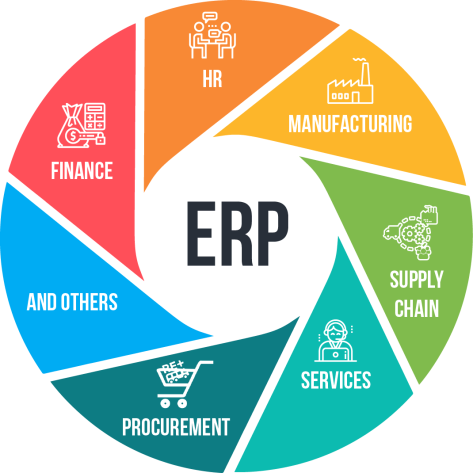What is an ERP?
An Enterprise Resource Planning (ERP) system is a software solution that integrates various business functions into a single system. This integration streamlines operations, improves efficiency, and provides real-time insights into business performance. ERP systems typically cover areas such as:
- Finance and Accounting: General ledger, accounts payable, accounts receivable, budgeting, and financial reporting.
- Human Resources: Employee management, payroll, benefits, and time and attendance.
- Supply Chain Management: Inventory management, procurement, production planning, and logistics.
- Customer Relationship Management (CRM): Sales, marketing, and customer service.
- Project Management: Project planning, tracking, and resource allocation.
Top 10 ERP Systems for 2024
Here are the top 10 ERP systems for 2024, based on their popularity, features, and market presence:
- Microsoft Dynamics 365 F&O:
- Strengths: Comprehensive functionality, scalability, easy integration with other Microsoft products, and a familiar user interface.
- Best suited for: Mid-market to large enterprises across various industries.
- Oracle Fusion Cloud ERP:
- Strengths: Strong financial management, advanced analytics, and global capabilities.
- Best suited for: Large, multinational corporations.
- Infor CloudSuite:
- Strengths: Industry-specific solutions, particularly for manufacturing and distribution.
- Best suited for: Mid-market to large enterprises in manufacturing, distribution, and other industries.
- Workday:
- Strengths: Strong HR and finance capabilities, cloud-native architecture, and user-friendly interface.
- Best suited for: Mid-market to large enterprises, especially those with a focus on HR and finance.
- Epicor:
- Strengths: Industry-specific solutions, especially for manufacturing, distribution, and retail.
- Best suited for: Mid-market enterprises in manufacturing, distribution, and retail.
- SAP S/4HANA:
- Strengths: Comprehensive functionality, real-time analytics, and integration capabilities.
- Best suited for: Large enterprises with complex business processes.
- IFS:
- Strengths: Industry-specific solutions, particularly for manufacturing, maintenance, and service.
- Best suited for: Mid-market to large enterprises in manufacturing, maintenance, and service industries.
- Oracle NetSuite:
- Strengths: Cloud-based, easy to use, and suitable for small and medium-sized businesses.
- Best suited for: Small and medium-sized businesses.
- Odoo:
- Strengths: Open-source, highly customizable, and suitable for small and medium-sized businesses.
- Best suited for: Small and medium-sized businesses.
- Force Platform:
- Strengths: Extensible platform, integration capabilities, and customization options.
- Best suited for: Organizations looking to build custom applications on top of Salesforce.
Remember that the best ERP system for your business depends on your specific needs, budget, and industry. It’s essential to evaluate your business requirements carefully and select a solution that aligns with your long-term goals.


Leave a Reply